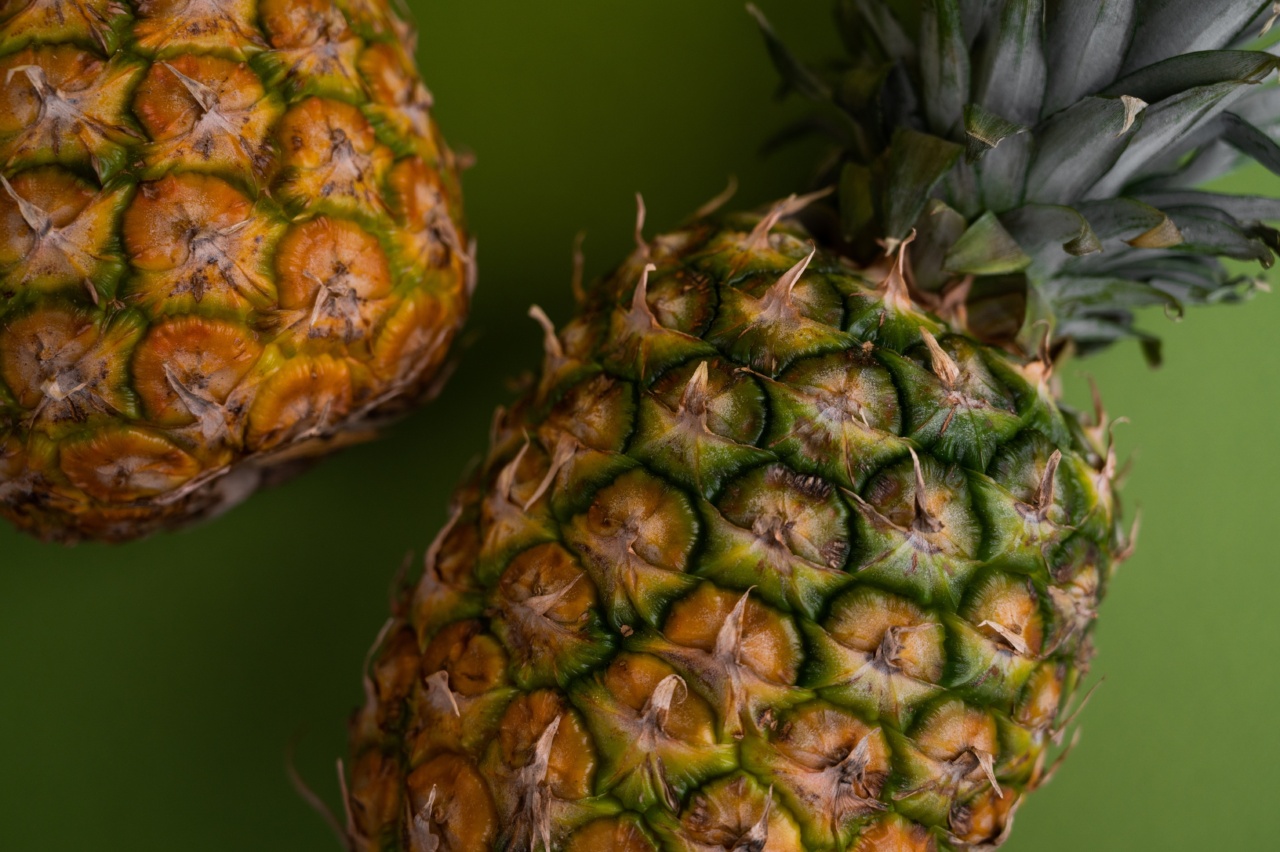Linoleic acid is a type of omega-6 fatty acid that is beneficial for heart health, when consumed in moderation. It is an essential fatty acid, meaning that our body can’t produce it and we need to get it from our diet.
The following is a list of 30 foods that are high in linoleic acid:.
1. Soybean Oil
Soybean oil is one of the most common oils used for cooking and is a rich source of linoleic acid. It is also a good source of monounsaturated and polyunsaturated fats which make it beneficial for heart health.
2. Corn Oil
Corn oil is another common cooking oil that is high in linoleic acid. It is also a good source of antioxidants such as vitamin E and phytosterols which can reduce cholesterol levels.
3. Sunflower Oil
Sunflower oil is a light, mild-tasting oil that is rich in linoleic acid. It is also a good source of vitamin E which has antioxidant properties and can protect the heart.
4. Safflower Oil
Safflower oil is a popular cooking oil that is high in linoleic acid. It is also low in saturated fat which makes it beneficial for heart health.
5. Wheat Germ Oil
Wheat germ oil is a good source of linoleic acid and other nutrients such as vitamin E, B vitamins, and antioxidants that can protect the heart.
6. Flaxseed Oil
Flaxseed oil is a rich source of alpha-linolenic acid, an omega-3 fatty acid that has anti-inflammatory properties and can reduce the risk of heart disease. It is also high in linoleic acid which makes it beneficial for heart health.
7. Peanut Oil
Peanut oil is a popular cooking oil that is high in monounsaturated fats and polyunsaturated fats including linoleic acid. It can improve cholesterol levels and protect the heart.
8. Cottonseed Oil
Cottonseed oil is a good source of linoleic acid and is often used in baked goods and processed foods. It is also high in antioxidants that can protect the heart.
9. Walnuts
Walnuts are a good source of alpha-linolenic acid, vitamin E, and other nutrients that can improve heart health. They are also high in monounsaturated and polyunsaturated fats including linoleic acid.
10. Almonds
Almonds are a rich source of monounsaturated and polyunsaturated fats including linoleic acid and can improve cholesterol levels. They are also high in vitamin E and other nutrients that can benefit heart health.
11. Pistachios
Pistachios are an excellent source of monounsaturated and polyunsaturated fats including linoleic acid which can reduce cholesterol levels and support heart health.
12. Cashews
Cashews are a good source of monounsaturated and polyunsaturated fats including linoleic acid. They also contain magnesium and potassium which can help regulate blood pressure and protect the heart.
13. Hazelnuts
Hazelnuts are a good source of monounsaturated and polyunsaturated fats including linoleic acid. They are also high in vitamin E, fiber, and other nutrients that can benefit heart health.
14. Brazil Nuts
Brazil nuts are a rich source of monounsaturated and polyunsaturated fats including linoleic acid and selenium, which can improve heart health by reducing inflammation and protecting against oxidative stress.
15. Pumpkin Seeds
Pumpkin seeds are a good source of monounsaturated and polyunsaturated fats including linoleic acid. They are also high in magnesium, zinc, and other nutrients that can benefit heart health.
16. Sesame Seeds
Sesame seeds are a good source of monounsaturated and polyunsaturated fats including linoleic acid. They are also high in antioxidants and other nutrients that can protect the heart.
17. Chia Seeds
Chia seeds are a rich source of alpha-linolenic acid, fiber, and other nutrients that can benefit heart health. They are also high in monounsaturated and polyunsaturated fats including linoleic acid.
18. Avocado
Avocado is a good source of monounsaturated and polyunsaturated fats including linoleic acid. It is also high in fiber, antioxidants, and other nutrients that can protect the heart.
19. Salmon
Salmon is a rich source of omega-3 fatty acids including alpha-linolenic acid, which can improve heart health by reducing inflammation and protecting against oxidative stress.
It is also high in monounsaturated and polyunsaturated fats including linoleic acid.
20. Trout
Trout is another good source of omega-3 fatty acids including alpha-linolenic acid, which can improve heart health by reducing inflammation and protecting against oxidative stress.
It is also high in monounsaturated and polyunsaturated fats including linoleic acid.
21. Mackerel
Mackerel is a fatty fish that is high in omega-3 fatty acids including alpha-linolenic acid, which can improve heart health by reducing inflammation and protecting against oxidative stress.
It is also high in monounsaturated and polyunsaturated fats including linoleic acid.
22. Tuna
Tuna is a good source of omega-3 fatty acids including alpha-linolenic acid, which can improve heart health by reducing inflammation and protecting against oxidative stress.
It is also high in monounsaturated and polyunsaturated fats including linoleic acid.
23. Beef (grass-fed)
Grass-fed beef is a good source of monounsaturated and polyunsaturated fats, including linoleic acid which can help improve cholesterol levels and reduce the risk of heart disease.
It is also a good source of protein, vitamin B12, and other nutrients that can benefit heart health.
24. Lamb (grass-fed)
Grass-fed lamb is a good source of monounsaturated and polyunsaturated fats, including linoleic acid which can help improve cholesterol levels and reduce the risk of heart disease.
It is also a good source of protein, vitamin B12, and other nutrients that can benefit heart health.
25. Eggs (free-range)
Free-range eggs are a good source of monounsaturated and polyunsaturated fats, including linoleic acid which can help improve cholesterol levels and reduce the risk of heart disease.
They are also high in protein, vitamin D, and other nutrients that can benefit heart health.
26. Cheese (grass-fed)
Grass-fed cheese is a good source of monounsaturated and polyunsaturated fats, including linoleic acid which can help improve cholesterol levels and reduce the risk of heart disease.
It is also a good source of protein, calcium, and other nutrients that can benefit heart health.
27. Yogurt (grass-fed)
Grass-fed yogurt is a good source of monounsaturated and polyunsaturated fats, including linoleic acid which can help improve cholesterol levels and reduce the risk of heart disease.
It is also a good source of protein, probiotics, and other nutrients that can benefit heart health.
28. Milk (grass-fed)
Grass-fed milk is a good source of monounsaturated and polyunsaturated fats, including linoleic acid which can help improve cholesterol levels and reduce the risk of heart disease.
It is also a good source of protein, calcium, and other nutrients that can benefit heart health.
29. Oats
Oats are a good source of fiber which can help reduce cholesterol levels and improve heart health. They are also low in saturated fat and high in monounsaturated and polyunsaturated fats including linoleic acid.
30. Brown Rice
Brown rice is a good source of fiber, protein, and other nutrients that can benefit heart health. It is also low in saturated fat and high in monounsaturated and polyunsaturated fats including linoleic acid.
Conclusion
Eating a diet rich in linoleic acid can help improve cholesterol levels and reduce the risk of heart disease.
Including a variety of foods such as cooking oils, nuts, seeds, fish, and grass-fed meats can provide an abundance of this essential fatty acid that our body needs for optimal health.
























